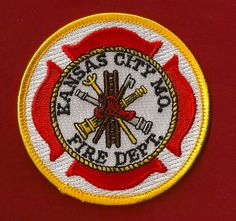The Kansas City Council on Thursday voted in favor of a new wage deal through April 30, 2020, with the local firefighters union.
The council majority said the deal was a good compromise to resolve a months-long impasse with Local 42 of the International Association of Fire Fighters, which represents about 1,100 firefighters and ambulance workers in the city.
Council members Heather Hall and Teresa Loar said public safety is their highest priority and they will always support significant funding for firefighters and police. Their comments were greeted with cheers and a standing ovation from dozens of firefighters in the council chambers.
But Mayor Sly James, Mayor Pro Tem Scott Wagner and City Manager Troy Schulte cautioned it’s more expensive than the 2 percent annual employee raises that the financial plan says the city can afford.
James and Wagner initially voted “no” against increasing the offer, although James ultimately voted for the deal. Wagner was the lone dissenter.
A city fact sheet calculated that the wage deal will cost at least $302.6 million through 2020, or $8.4 million more than anticipated in the city’s five-year plan.
The deal has even bigger implications because police often seek parity with what firefighters have received.
James told his colleagues that police, fire and ambulance costs already eat up nearly three-fourths of the city’s money for basic services, leaving an ever-dwindling amount for code enforcement, trash collection and other vital neighborhood services.
“This will have an economic consequence,” James warned.
The pact was approved on the same daythat the council adopted a $1.5 billion new budget for 2016-2017. That budget includes money for 2 percent raises, so the city will have to find about $400,000 more to pay for the first year of higher raises for firefighters and ambulance workers. The major expense, however, comes in subsequent budget years.
This deal will create a lot of long-term budget pressure, Schulte agreed.
“It’s going to be a tradeoff between personnel and programs,” he said.
Councilman Dan Fowler acknowledged the deal “is not a perfect agreement” but said it was a way to conclude 14 months of tough labor negotiations that threatened to drag out even longer with ongoing union opposition.
Union leader Bill Galvin said his members still need to vote on this new plan, but he thought they would do so in about a week. It’s more favorable to the union than a plan Schulte presented a week ago.
Schulte’s plan proposed that union wages be frozen in the fourth and fifth years if new emergency medical revenues didn’t grow by at least $6 million.
But this approved deal would provide three years and possibly four of raises of at least 2.6 percent annually. The fourth-year raise will come if at least some unspecified amount of new revenue materializes. If no new revenue arises, then there’s one more year of a freeze.
“It’s a lot better outcome,” Galvin said. “We don’t need to try to come up with $6 million in revenue coming in.”
A city document shows the 100 top-paid Fire Department employees, including management and 50 union members, each make more than $103,000 annually. According to the city’s Human Resources Department, the current base firefighter pay is $35,172. Average base firefighter pay is about $56,800, but many firefighters enhance their salaries with overtime, special duty and education credentials.
Base pay for emergency medical technicians is $36,876 and the average is $51,404. For paramedics, it’s $45,624 and the average is $57,762.


